Invictus : In The Shadow of Olympus review
Fantasy RPG / RTS reviewed
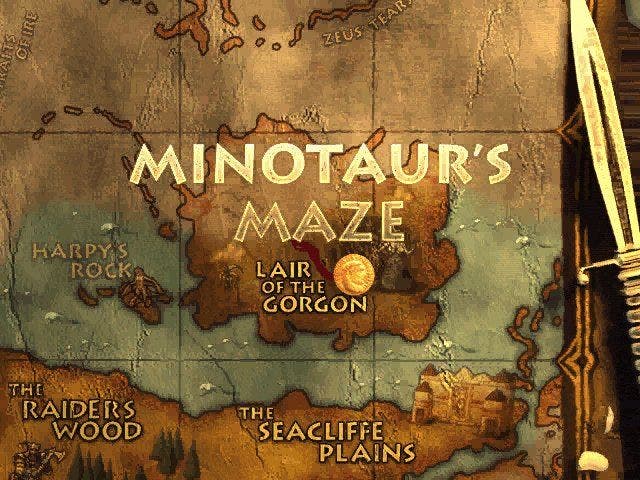
Heavens Above
Invictus is (rather loosely) based on ancient Greek mythology - the goddess Athena has returned from mentoring Odysseus, who went on to kill Poseidon's son on his way home from the Trojan war. Poseidon is none too pleased, and dismisses the whole thing as a fluke.
Athena sees this as a challenge, and throws down the gauntlet to Poseidon by saying that she can take any mortal and train them to defeat three trials set by the gods. And who is this mortal? Of course, it's you.
The game itself draws from the role-playing and real-time strategy genres. The (very basic) RPG part comes in the form of accumulating gold to train members of your "War Party", increasing their levels in three areas - Attack (damage done to enemy), Armour (amount of damage taken before being injured), and Physical (hit points and movement speed).
The main game though is an RTS, with you commanding your limited supply of units around the map, setting waypoints and formations (which are fully customisable), and of course killing stuff.
When you start a new game you have three options - "Quick Start", "New Game", and "Tutorial". Choosing New Game prompts you to pick two heroes from a selection of ten mythical figures, and these will form the heart of your war party. Selecting Quick Start simply picks your two starting heroes for you at random.
The Tutorial on the other hand introduces you to the game's controls and features, and is both informative and entertaining, although the two jokers who come in near the end of the tutorial do go on a bit. Anyone who's played an isometric role-playing or strategy game recently should soon be right at home with the control system.
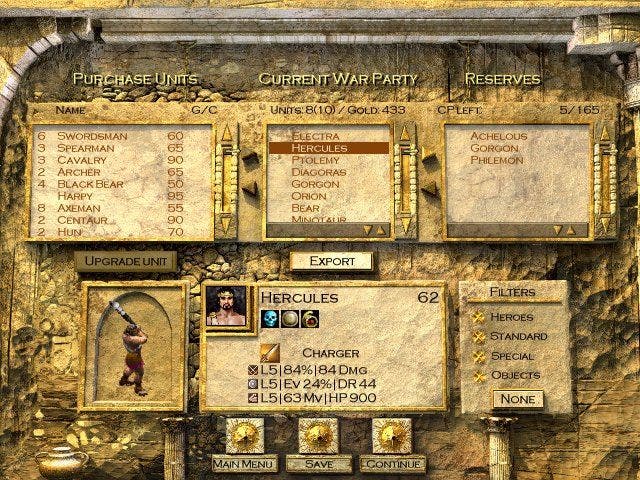
It's My War Party
Once you have got to grips with the tutorial and picked your two heroes for the main game, it is time to put together a war party to support them in combat.
Before each level you are taken to your war party editor, where you can purchase new units, train current ones, or send some of them to your reserves list. These reserves can then be called on during the game if you find yourself a bit outnumbered, which you frequently will.
The further you get through the game, the more weird and wonderful types of units become available to recruit, ranging from your basic Swordsmen and Archers to the funky Gorgons and Minotaurs.
And as the game progresses you can also add another two heroes to your war party by way of recruitment missions. Successfully perform a certain task in one of these missions, sometimes within a set time limit, and the appropriate hero will join your war party.
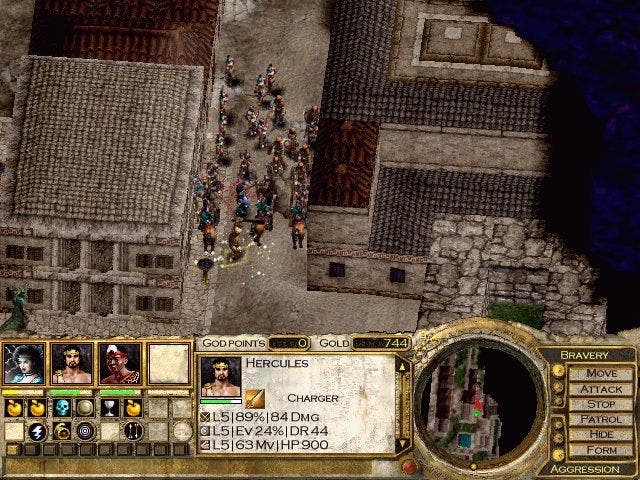
Hack, Slash, And Repeat
Once you have picked your war party it is time to start the mission. You will find various NPCs wandering about the map, and they will often offer you sub quests, point you in the direction of special items which your heroes can use, or sell you weapons and equipment.
And of course there are plenty of bads guys to take on. This may sound like a simple task, but for some reason even if you pile into a single enemy with several units plus a hero, it can still take a couple of minutes for him to die. This becomes quite a problem in the later stages of the game, when you are constantly outnumbered and battles seemingly take forever.
Unfortunately the majority of the game just involves going round beating up whoever or whatever gets in your way, and after a hour or two each level feels just like the others.
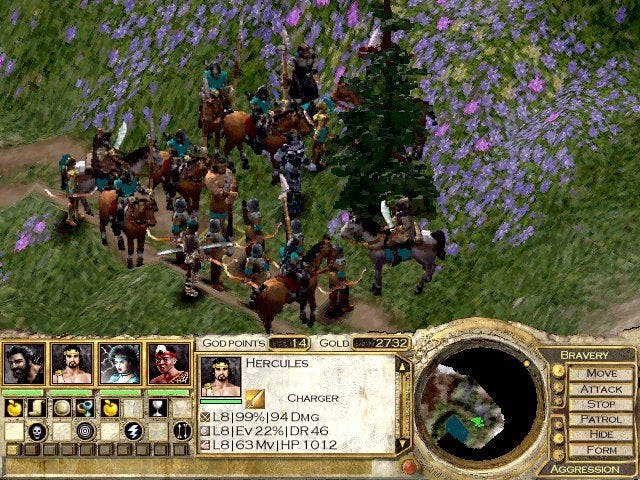
How "Appealing"
Each of the ten heroes available in the game comes with their own "Appeal", or special ability to you and me, ranging from Hercules with his Earthquake to Cadmus and his summon skeleton spell. Appeals cost "God Points", and each mission you are given a set amount of these to spend as you see fit.
Some of the effects used for the appeals are visually quite impressive - the Earthquake makes the landscape ripple, and the little particle effects that appear when spells are cast have a nice "ooooh" factor, but after a couple of shows the novelty is gone.
Speaking of effects .. the game uses a mix of voxel graphics and polygon terrain. Although the gameplay is nice and smooth on a suitably powerful machine, the game does look somewhat dated, and the ability to zoom, pan and rotate the terrain really doesn't add much to the game.
The sound is also somewhat lacking. The constant grunts and squeals from your own troops can really get annoying after a while, although the ambient background sounds are well done and suit the environments well. Just thinking about the trickling streams make my bladder fill up...
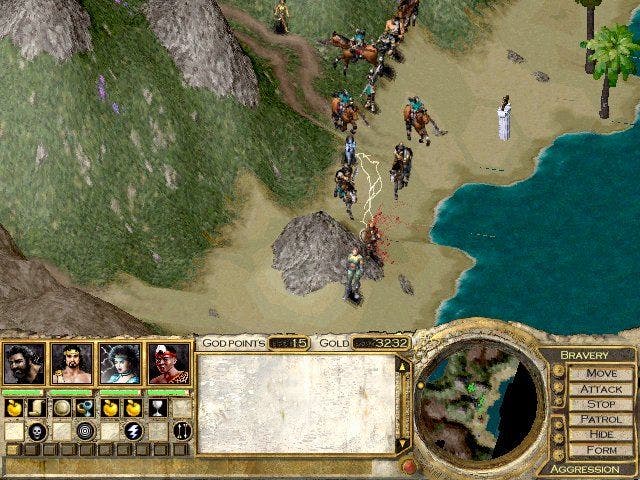
Conclusion
Invictus was a fun game to play for a while, but you soon reach a point where the fun drops off at a rapid rate and monotony creeps in. It's a shame really, because the idea and background for the game sounded fantastic on paper, but obviously got lost somewhere in the development process.
The game does maintain a certain replayability factor due to the range of heroes and other units on offer, but whether you will even want to play the whole thing over again remains to be seen. Disappointing.
